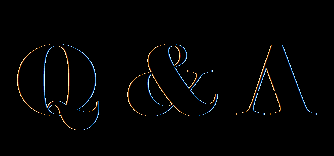Better to win by admitting my sin
than to lose with a halo
– Evita
Vance offends half the world: 115 views, and a crapload of comments.
Vance apologizes for the offense and attempts a reformulation along more sensitive lines: 25 views, and one comment.
How’s that for a MasterCard commercial?
Welcome to the wonderful world of bits and pieces. A world in which one’s image depends on the snippet view. A world in which, as Madalyn at Wary Wonderlust pointed out, opposition often carries more weight than fellow feeling, and anger becomes the motivating force that both drives and derails our desire for communication.
Last week, I set off a barrage of protest with a post I wrote about race and gender relations. Most of the protest centered around the fact that, being neither Black nor a woman, I should check myself before venturing an opinion. Much of it was valid. And there was much of it: my blog stats went through the roof. One of those situations where your graph looks like it’s flipping you off: nothing, EVERYTHING, and then nothing again.
In my perceived offensiveness, I became a momentary celebrity. Not because I said something worth celebrating, but because I opened myself to easy attack (perhaps justified, but attack nonetheless). I painted a bullseye on my head, and people opened fire.
Okay. Fair enough.
The day after everything exploded, in an attempt to rectify whatever foul I had committed, I wrote a second post, in which I tried to explain myself more clearly and less offensively, and to acknowledge the possible poverty of my initial approach.
Then, I sat back and counted the tumbleweeds.
The pitchfork-laden crowd that had done such an effective job of raining criticism down upon my head the first time around apparently had other barns to burn. A couple of the people who had taken me to task stopped by, but for the most part…silence. No linking, pretty much no commenting. Zip. Zilch. Nada.
Now, you may be tempted to take this as me making everything about Me. But I’m really not out to be patted on the head, or to be showered with compliments for addressing my own misstep. That’s just what decent people do; no big whoop there. It is telling, though, that given the central remonstrance (men never listen) offered to the first post, no one had much to say when one of us tried.
But it’s a broader point I’m making here:
This bloggy-sphere of ours is the quintessential typecasting machine. It nails us to the lowest point in our rhetoric, and leaves us there to rot. It catches us on our worst day, at our darkest moments, and etches the image in stone. We become the villain of the story no matter what that story really is.
Now, I’ve been told exhaustively that it isn’t the blogosphere that does this, and that’s a valid point. The Internet doesn’t kill people; people who use the Internet kill people. At the end of the day, it’s us. We’re the ones who determine the nature of this beast, and the fact that its nature is so prone to conflict and confrontation says far more about us than it does about the medium in question.
We tend to choose the shortest possible route from A to B, and the shortest route from post to response is too often a bloodthirsty yell. It is your label of choice. It is the distance from the target, the remove that displaces responsibility from the one who pulls the trigger.
We are all human, and we all respond to criticism or disagreement in human ways which are often less than constructive, if not outright destructive. We all have our dark side and our light. We all have our triggers, and we’re all quick to pull them. And we all leave little chalk outlines strewn behind us as we go.
Sometimes we are the villains. More often, I think (I hope), we are simply people with complicated things to say and little clue how to say them, desperate for the patience and understanding of others, but unwilling to grant either ourselves. And here’s the rub: when we’re not willing to extend the same consideration to others that we desire for ourselves, everyone becomes our enemy. We arrogate to ourselves the best of intentions while assuming everyone else is out to get us. And you know what they say about assumptions…
They make bloggers out of U and Me.





